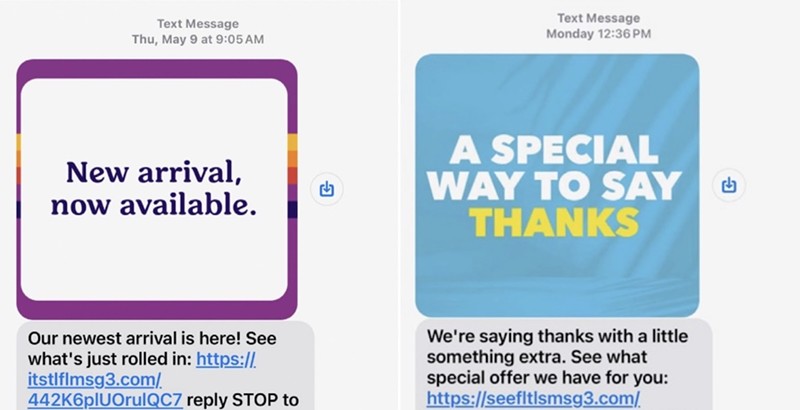A Florida woman has filed a class action lawsuit against Trulieve, claiming the cannabis giant broke federal law by bombarding her and other customers with marketing texts even after they opted out.
Juliana Martinez filed the lawsuit early this month on behalf of consumers allegedly slammed with unwanted promotional text messages from the marijuana company. She claims Trulieve violated the Telephone Consumer Protection Act by continuing to text her and other customers "to harass them into making purchases" despite their decision to opt out.
"Through this action, Plaintiff seeks injunctive relief to halt Defendant’s unlawful conduct, which has resulted in the intrusion upon seclusion, invasion of privacy, harassment, aggravation, and disruption of the daily life of Plaintiff and the class members," the lawsuit claims.
Under the Telephone Consumer Protection Act (TCPA), which was passed by Congress in 1991, companies that send marketing texts must give people the option to opt out and aren't allowed to contact them that way again if they opt out.
The lawsuit claims Trulieve violated the law by "failing to honor opt-out requests, failing to maintain the required policies and procedures, and failing to train its personnel engaged in telemarketing."
Trulieve has not responded to New Times' request for comment.
According to the lawsuit in Miami federal court, Martinez called Trulieve on May 1 to unsubscribe from their promotional texts. The company assured her she would no longer receive messages.
However, she says in the lawsuit that Trulieve continued to send her texts — including two on May 9.
And it didn't stop there, she alleges.
While Martinez called Trulieve again the following day to reiterate her request to stop receiving texts, and Trulieve promised she would be spared more marketing messages, she received two more promotional texts on May 12 and 13, according to the lawsuit.
The lawsuit claims that Martinez received a total of nine texts from Trulieve after her initial opt-out request, with six of them being sent after her second request to stop receiving messages.
"As demonstrated by the above screenshots, Defendant does not honor consumer requests to opt-out of text message solicitations. Indeed, Plaintiff attempted to opt-out of Defendant's text message solicitations twice by telling Defendant not to contact her anymore, but Defendant continued to text message Plaintiff," the suit reads.
The suit notes that while Martinez does not know the exact number of members of the class, she "is informed and believes that there are at least 50 individuals that fall within the class definition."
"The members of the Class, therefore, are believed to be so numerous that joinder of all members is impracticable," the lawsuit reads.
Trulieve is by far Florida's largest medical marijuana operator with more than 200 locations across Florida. The company has been a dominant player in the Florida cannabis market since the state legalized medical marijuana through a ballot initiative back in 2016.
TCPA class actions are on the rise as more plaintiffs sue over claims of unwanted marketing calls and text messages. Troutman Amin, a firm that defends companies against TCPA lawsuits, reported that class actions under the federal telemarketing law increased 39 percent from January to April 2024 as compared to the same period in 2023.
[
{
"name": "Air - MediumRectangle - Inline Content - Mobile Display Size",
"component": "19274298",
"insertPoint": "2",
"requiredCountToDisplay": "2"
},{
"name": "Editor Picks",
"component": "17482312",
"insertPoint": "4",
"requiredCountToDisplay": "1"
},{
"name": "Inline Links",
"component": "18711090",
"insertPoint": "8th",
"startingPoint": 8,
"requiredCountToDisplay": "7",
"maxInsertions": 25
},{
"name": "Air - MediumRectangle - Combo - Inline Content",
"component": "17482310",
"insertPoint": "8th",
"startingPoint": 8,
"requiredCountToDisplay": "7",
"maxInsertions": 25
},{
"name": "Inline Links",
"component": "18711090",
"insertPoint": "8th",
"startingPoint": 12,
"requiredCountToDisplay": "11",
"maxInsertions": 25
},{
"name": "Air - Leaderboard Tower - Combo - Inline Content",
"component": "17482313",
"insertPoint": "8th",
"startingPoint": 12,
"requiredCountToDisplay": "11",
"maxInsertions": 25
}
]












